Trends
Tough Days Ahead For France As Ivory Coast Joins Africa In The Wave Of Expelling French Troops. Are The Days Of “Francafrique” Fading And Why?
Published
1 year agoon

It seems France’s influence in Africa is fading faster than Macron might have hoped. Ivory Coast has now joined a growing list of African nations bidding adieu to French troops.
This comes after decades of France maintaining a strong military presence in the region, often touted as a stabilizing force. But times are changing, and the tide of local resentment against the former colonial power is proving too strong to ignore.
A Big Move by Ivory Coast
On Tuesday, Ivorian President Alassane Ouattara announced that French troops would soon be leaving the country. Starting January 2025, the 43rd Marine Infantry Battalion (BIMA), based in Port-Bouet, Abidjan, will be handed over to the Ivorian military. Ouattara attributed this decision to the “modernisation” and effectiveness of Ivory Coast’s army.
But let’s not kid ourselves—this move isn’t just about a stronger local military.
The Domino Effect in Africa
Ivory Coast isn’t alone in its decision. In November, Chad and Senegal also expelled French troops, following the lead of several Sahel countries that began severing ties with France in 2021. The message is clear – Africa is ready to rewrite its relationships with foreign powers, and France’s presence is increasingly unwelcome.
This growing trend has forced France to rethink its military strategy on the continent. Temporary deployments and a focus on training local forces are now on the cards, but whether this will be enough to salvage France’s dwindling influence remains to be seen.
What’s Behind the Resentment?
The reasons for the pushback are multi-layered.
Many African nations still view France as a symbol of colonial exploitation and control. Despite decades of independence, the lingering presence of French troops has often been seen as a reminder of an unequal power dynamic.
In Ivory Coast, Ouattara’s decision to expel French forces might also have political undertones. With general elections coming up in October and growing public anger against France, this move could be a strategic attempt to placate voters.
As trust in France wanes, some African nations are turning to Russian mercenaries like the Wagner Group to tackle armed groups in the region. This shift indicates a desire for new partnerships and a rejection of the old guard.
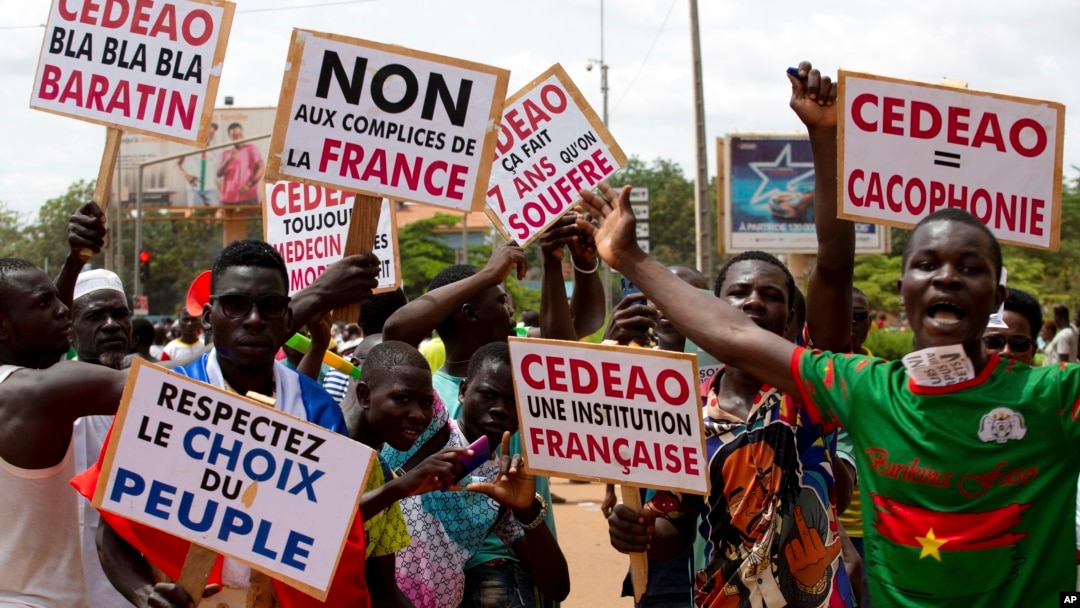
Why is France Facing a General Pushback in Francophone Africa?
The relationship between France and its former colonies in West and Central Africa is undergoing a seismic shift. From Mali to Ivory Coast, the streets have seen mass protests as citizens demand their governments cut ties with Paris once and for all.
This wave of resentment, though amplified in recent years, is deeply rooted in history and fueled by modern grievances.
A Colonial Hangover
France’s colonial rule was harsh, to say the least. Traditional institutions, cultures, and leadership structures were weakened as European customs and officials were forced upon locals. Many still view France’s administration during colonization as exploitative, with policies designed to expand French economic control at the expense of local autonomy.
When independence arrived in the 1960s, the story didn’t end.
France built a network of influence with African elites under the banner of “Francafrique.” This strategy safeguarded French economic interests, allowing over 200 French companies, like oil giant Total and uranium miner Orano, to thrive in Africa. It also ensured a steady presence of French troops on the continent, ostensibly to provide military training and support.
A Shift in the Sahel
However, the last five years have brought a stark reality check for France. Military-led governments in the Sahel region have begun to push back against what they see as the ineffectiveness of French military operations. Despite thousands of French troops stationed in the region, armed groups like Jama’at Nusrat al-Islam wal-Muslimin (JNIM) have continued to expand their influence, turning areas like Mali, Burkina Faso, and Niger into hotspots of violence.
Which Countries Have Expelled French Troops and Why?
By January 2025, six African nations—Mali, Burkina Faso, Niger, Chad, Senegal, and Ivory Coast—had severed military ties with France, signaling a broader shift away from French influence in the region.
Here’s a closer look at why each country made this decision –
Mali
The turning point came in August 2020 when Malian soldiers staged a coup, ousting the civilian government over its failure to curb escalating violence. France, which condemned the coup, became a target of populist rhetoric, with the military government accusing Paris of meddling in Mali’s affairs. The streets of Bamako filled with protests, demanding France’s departure.
In June 2021, French President Emmanuel Macron announced a phased withdrawal of troops, which concluded by December 2023. Since then, Mali has deepened its ties with Russia, including deploying Russian mercenaries. However, violence remains rampant—over 5,000 lives were lost across the Sahel in the first half of 2024, with millions displaced, according to ACLED.
Burkina Faso
A military government took power in January 2022, riding a wave of public frustration over a civilian administration deemed ineffective against armed groups. France, seen as supporting the ousted government, faced mounting resentment. By February 2023, Burkina Faso ordered French troops to leave within a month. By early 2024, reports indicated the arrival of 300 Russian troops, signaling a pivot in alliances.
Niger
Following coups in neighboring countries, Niger’s military staged its own in July 2023, toppling President Mohamed Bazoum. Anti-French sentiment surged, with many Nigeriens backing the new regime and demanding the withdrawal of French troops stationed in Niamey. The expulsion of French forces was finalized in December 2023.
Senegal
In November 2024, President Bassirou Diomaye Faye announced plans to shut down French military bases starting in 2025, citing sovereignty concerns. The decision came during commemorations of the 80th anniversary of a colonial-era massacre in which French forces killed West African soldiers demanding fair treatment after fighting for Paris in World War II. Currently, 350 French troops are stationed in Senegal.
Chad
A key player in France’s military strategy in Africa, Chad also ended its military pact with France in November 2024. Foreign Minister Abderaman Koulamallah acknowledged France’s historical role but emphasized Chad’s sovereignty and maturity as a nation. Chad had hosted 1,000 French troops, marking France’s last stronghold in the Sahel.
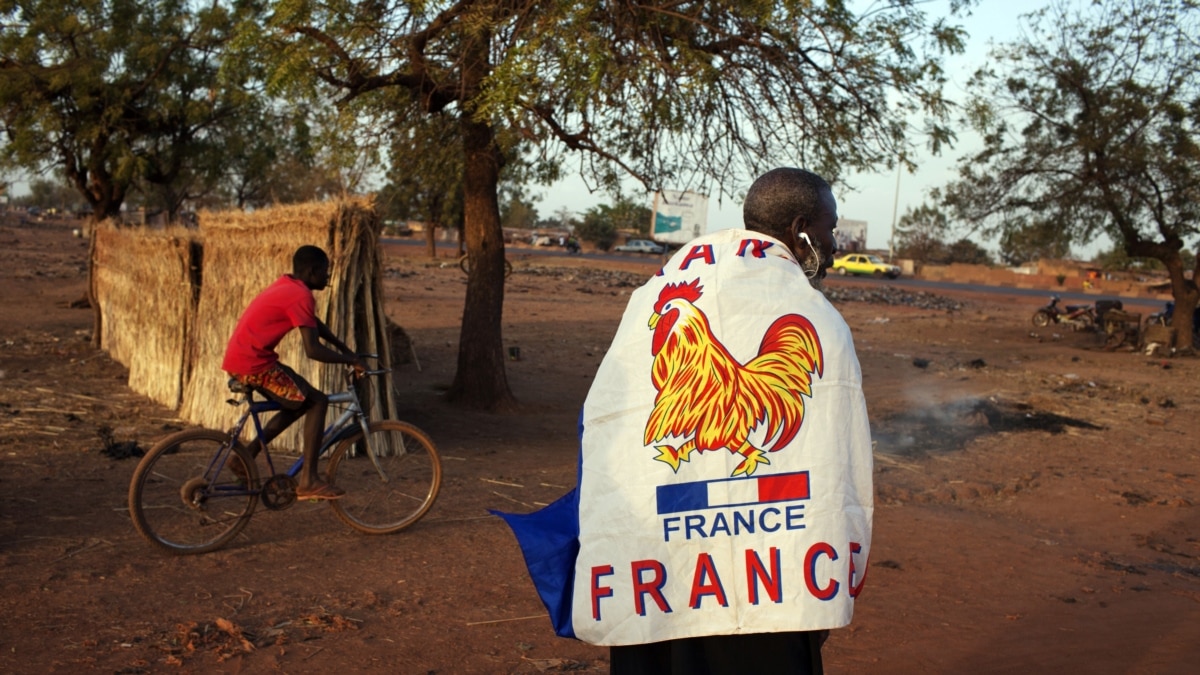
So Is France Truly Out Of Africa?
No, but its footprint is rapidly shrinking. France continues to maintain a significant military base in Djibouti, located in Eastern Africa. This former French colony hosts approximately 1,500 French troops, making it one of France’s largest overseas contingents.
In West and Central Africa, the story is different.
France retains a small presence in Gabon, where around 300 troops remain stationed. Interestingly, Gabon’s military seized power in a coup in August 2023, ending decades of rule by the Bongo family. Unlike other military-led governments in the region, Gabon’s junta has maintained ties with Paris. Analysts suggest this might be due to widespread resentment against the Bongo dynasty, making the French alignment with Gabon’s military government less contentious than in neighboring countries.
Macron’s Stormy Visit to Mayotte
France’s influence isn’t just being tested on the mainland. President Emmanuel Macron faced public anger during a visit to Mayotte, a French territory in the Indian Ocean, which was reeling from the aftermath of Cyclone Chido. Macron’s blunt response to hecklers underscored France’s complicated relationship with its overseas territories.
“You are happy to be in France. If it wasn’t for France, you would be in way deeper shit, 10,000 times more,” Macron retorted, emphasizing the aid Mayotte received in comparison to other Indian Ocean regions. Despite his words, frustration over the lack of potable water and delayed recovery efforts has fueled discontent in one of France’s poorest territories.
Not Wanting The Colonial Hangover Anymore
From military expulsions across Africa to public discontent in overseas territories, the signs are hard to ignore—France’s influence is waning. Its historical dominance in Francophone Africa is being replaced by a push for sovereignty and alternative alliances. While Djibouti and Gabon remain exceptions for now, the broader trend suggests that France’s role on the continent is rapidly diminishing.
These expulsions reflect a growing desire among African nations to assert their independence and redefine their relationships with former colonial powers. France, once a dominant force in Francophone Africa, is being compelled to rethink its military and diplomatic strategy on the continent.
Can France adapt to this new reality, or is it destined to retreat further?
You may like
-


Trump’s Latest Tariff Move on Mexico and Canada. Import Taxes Back on Track Hinting At A Full Blown Trade War!
-
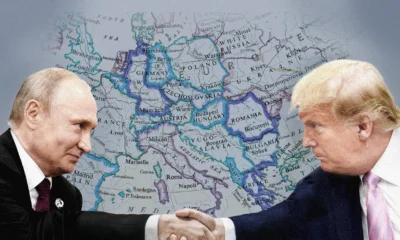

How It’s Not Trump But Vladimir Putin That Europe Is Stinging From: Trump’s U-Turn On Europe, Russia’s Strong Supply Chain—A Formidable Opponent!
-
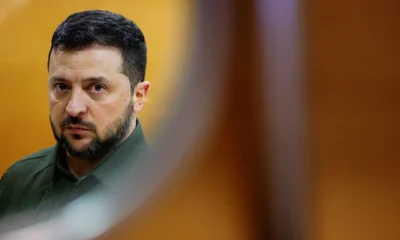

Is Ukraine Now Stuck In The US-Russia Ecosystem? Could Zelensky Have Made A Deal To Stop The War, Is Trump Right?
-


Is AI Rigging German Elections? The Rise Of AfD, And How Young Voters Are Powering AfD’s Surge On Social Media
-
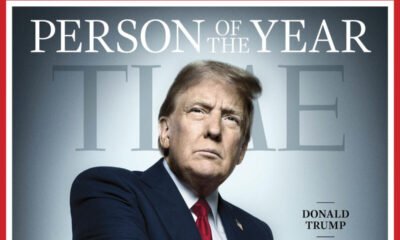

Why Are Japanese Companies Not Happy With Trump? How Trump 2.0 Is Shaking The World Into A ‘Rude’ Awakening?
-


High-Stakes Peace Talks Ahead. Trump Team Leads, Zelenskyy Joins, But Ukraine Faces Tough Concessions—A Betrayal? Even As European Allies Watch In Disbelief
